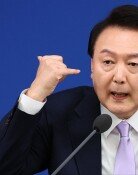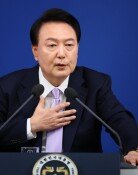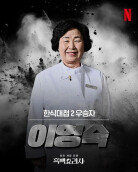[Editorial] Jeju, Time to Leap Forward
[Editorial] Jeju, Time to Leap Forward
Posted April. 14, 2007 07:56,
The appellate court sentenced a fine of six million won to Kim Tae-hwan for violation of the election law, nullifying his election as Jeju governor. If he is found guilty in the Supreme Court, Kim will be the third elected Jeju governor to be removed from office. The two other elected Jeju governors since the autonomous local government system was launched in 1995 had to also resign in disgrace. It is sad and regrettable.
Jeju, which was reborn as a special autonomous province last July, is an asset of the global age and a treasure to Korea more valuable than Hawaii and Hainan. The governments long-term plan is to transform Jeju into a free international city that can compete with Hong Kong and Singapore by giving full administrative powers except for defense, diplomacy and jurisdiction. This is also what Koreans themselves hope for. However, such a hope can be realized only when the visions of its governors integrate with Jeju residents capability to maintain a high standard of autonomy.
However, the vicious cycle of elected governors humiliating resignations makes us wonder whether Jeju is ready to become a free international city. Jeju residents point out that Jeju suffers greatly from the aftermath of elections because of its reclusive cultural climate that excessively emphasizes kinship, as well as hometown and school connections. Jejus reclusiveness and narrow-mindedness have not only made it suffer from the aftereffects of elections, but also have led to the erection of unnecessary walls, which will only result in impairing its own development as a free international city.
In addition to cities like Hong Kong and Singapore, Macao, whose population is similar to that of Jeju, is enjoying a renaissance thanks to overflowing foreign capital and tourists. The Venetian Hotel, which has some 3,000 rooms, is a good example that illustrates Macaos transformation from a casino city to a resort and convention city. This can be largely attributed to the consistent open-door policy of Edmund Ho, the chief executive of the Macao Special Administrative Region. Macao saw a foreign capital inflow of $5.1 billion between 2001 and 2005.
Meanwhile, Jeju has been branded as an expensive place. Even domestic tourists are turning their footsteps to China, Japan and Southeast Asian countries. Of course, we should not overlook the psychological trauma that Jeju residents have been suffering from the Jeju April 3rd Massacre. However, that took place almost 60 years ago, marking its 60th anniversary next year. It is time to put history behind to prepare for the future. In the near future, Jeju will have to face stiffer competition due to the free trade agreement. We look forward to seeing Jeju free from its outdated trends and traditions.







